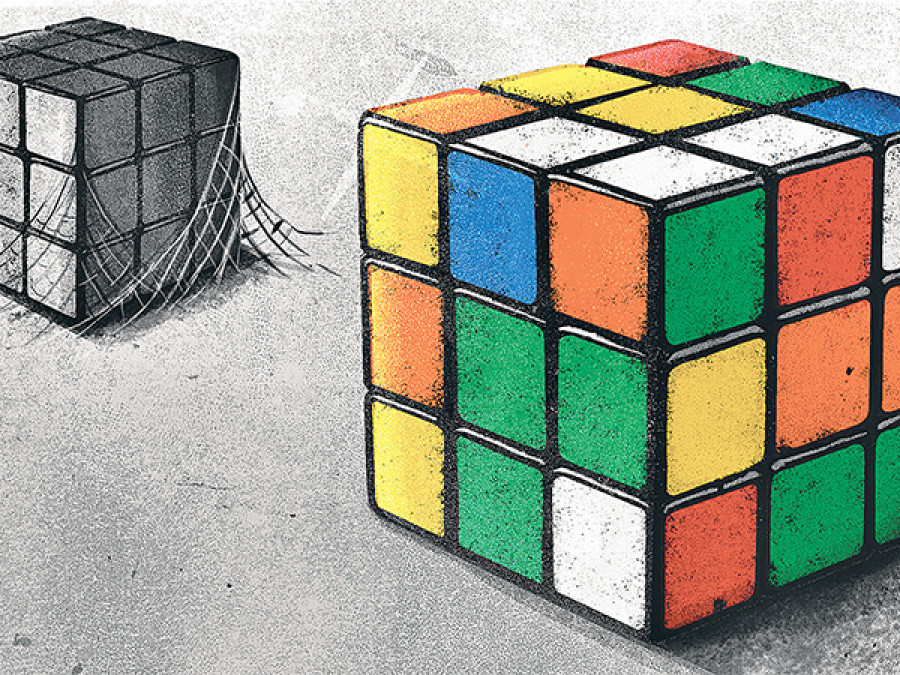Opinion
Transfer of power
DDCs will not be needed under federalism as village and municipal governments will be capable enough
Kl Devkota
Two tiers of local bodies currently exist in Nepal. The first tier consists of Village Development Committees (VDCs) and municipalities that have been providing frontline services at the local level across the country. In contrast, the District Devleopment Committees (DDCs), which make up the second tier, have neither territorial jurisdiction nor serve the local people directly. As a coordinating and monitoring unit, the DDCs’ function is as a middle-tier institution between the central government and the village and urban-level local governments (VDCs and municipalities). The other function of DDCs is to work for the overall development of the district by coordinating with all governmental and non-governmental offices, along with the private sector. However, DDCs have not really been effective at performing these tasks. In addition, other government sectoral offices, like roads, education, and health, also function similarly to local bodies. Additionally, NGOs have also been running parallel programmes.
Doing away with DDCs
Various Constituent Assembly (CA) reports have come up with a sketch of what local governments will look like in a federal setup. The State Restructuring and Distribution of State Power Committee report, in particular, proposed two levels of local governments—village councils and municipalities—along with a recommendation to entitle provincial governments to constitute a high-level commission to reform local bodies in consideration of territorial and other factors. The model does not see the need for a district-level local government in the future. The CA report also provides executive rights, legal rights, administrative rights, and financial rights to local governments.
Several reports have also proposed phasing out the district-level local government, as DDCs have failed to produce desired outcomes. The role of the DDC is to coordinate and provide technical and other kinds of support to programmes and activities relating to VDCs and municipalities. But VDCs complain that DDCs are deducting contingency or service operation costs from their budgets while providing few services.
DDCs have been providing services such as releasing funds, monitoring, reporting, and performance evaluation to VDC but municipalities are operating without any support. Whether it is a budget release or reporting, municipalities are currently working under the direct supervision of the government. They have direct linkages to all ministries.
The Association of Village Development Committees complains that DDCs have been creating obstacles in transferring resources to VDCs. Furthermore, DDCs lack human resources for carrying out large-scale development projects at the district level. Most DDC functions either overlap or are a duplication of the work done by sectoral line offices such as the departments of roads, irrigation, drinking water, agriculture, and livestock. A report from the Office of the Auditor General also shows that some districts have misused public money by allocating resources to roads already designed by the Department of Roads. Most ask, if municipalities are able to perform programmes and activities without any support from DDCs, why can’t VDCs do the same? This, however, is not possible until VDCs are reformed and restructured.
As rightly highlighted by the CA report, DDCs will not be required in the future under federalism. The proposed village and municipal-level local governments will be capable to carry out overall development works of their areas. Governmental and other kinds of support should be allowed to directly reach the grassroots. If we try to establish structures similar to the DDCs at the intermediate level, local people will not be able to access government resources and services directly.
Retaining VDCs
The first CA had unanimously decided not to propose an intermediate local-level government in the future. Still, existing local bodies need to be restructured. There should also be a plan for the future placement of existing DDC staff. The government should begin work right away to tackle these issues. Recently, all areas in Kathmandu and Bhaktapur districts have been declared municipalities. So the government will have to begin scrapping the Kathmandu and Bhaktapur DDCs. If this experiment is a success, it will be easier for the CA to illustrate its plan to only establish village and urban-level local governments in the constitution. If this practice fails, then we will have to keep the DDCs.
Presently, there are 3,276 VDCs and 190 municipalities throughout the country. Some VDCs are smaller than Tundikhel in Kathmandu while some have a population of less than 100 people. Various reports of the Local Bodies Fiscal Commission have revealed that more than 80 percent of the current VDCs are not economically viable. Most VDCs in Nepal are generally too small to be viable and to achieve the economies of scale necessary to engage in effective service delivery. There is still a valid argument to retain such VDCs as locals are not getting easy access to services in larger VDCs. In some of these large VDCs, people are compelled to travel for days, all the way to the district headquarters to find VDCs secretaries.
As the government has recently declared all urban centric VDCs as municipalities, it should not wait to amalgamate smaller VDCs into larger ones since the right to restructure local bodies has been proposed for provincial governments. The government should begin preparatory works right away. This will make things faster and easier for the provincial governments later. It will bring uniformity across the country as well. If everything is left for the future federal and provincial governments, then the development of Nepal will pushed back even more.
Devkota holds PhD in fiscal decentralisation and is a former member of Local Bodies Fiscal Commission




 9.12°C Kathmandu
9.12°C Kathmandu










